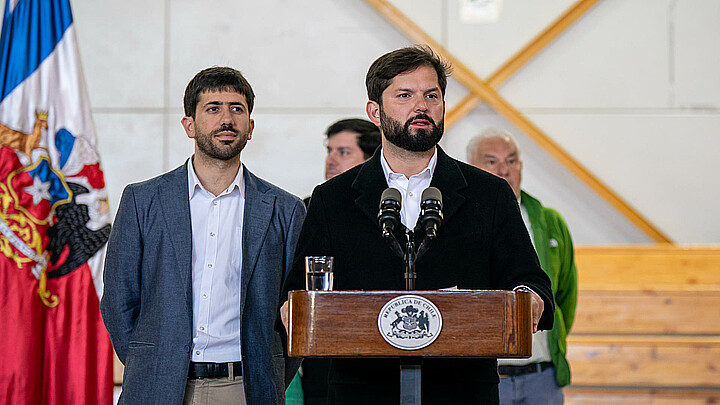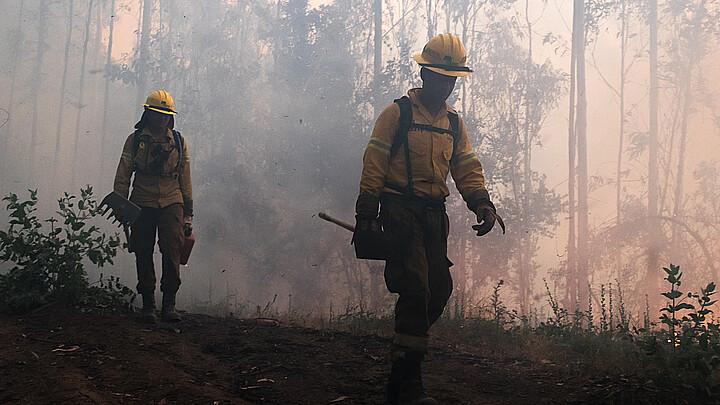Politics
Chile: Boric says forest fires are "intentional," may be driven by ideological revenge
The fires in Chile began in early February in the Ñuble, Biobío and Araucanía regions, between 370 and 600 kilometers south of the capital.
February 16, 2023 6:27pm
Updated: February 17, 2023 9:16am
The government of newly elected President Gabriel Boric said Thursday that the forest fires plaguing south-central Chile and left 25 dead and more than 900,000 acres burned could be the result of a vengeful act driven by ideology.
"There are very strong hints that [the fires] have been intentional. Intentional for different reasons, some will be ideological, others due to pyromania, others due to revenge; and between one or the other, we will undoubtedly have to investigate each one of them," said the minister of Public Works, Juan Carlos Valenzuela.
The fires that have plagued Chile for at least two weeks diminished this Thursday to 53 and are in the "containment phase."
The meteorological alert remains due to the generation of new fires in the center-south of the country.
The latest reports from the National Service for the Prevention and Attention of Disasters (Senapred) of the Ministry of the Interior of Chile show that the regions most affected by the fires are Biobío, with 485,159 acres affected.
In a summer, fires burn an average of close to 100,000 acres, making this one of the worst summers in terms of forest fires in the country's history.
In addition to the fatalities, the fires have destroyed more than 1,500 homes and left almost 7,000 people homeless, while health services have treated some 3,050 people.
More than 100 aircraft remain deployed at the epicenter of the devastating fires, along with thousands of brigade members, volunteer firefighters and police officers working on the ground to directly extinguish the fires or prevent new outbreaks.
The fires in Chile began in early February in the Ñuble, Biobío and Araucanía regions, between 370 and 600 kilometers south of the capital.
The lack of resources (in Chile firefighters are not professionals), poor forest management in the center-south and adverse weather conditions accelerated the tragedy, the deadliest of its kind in the country.








